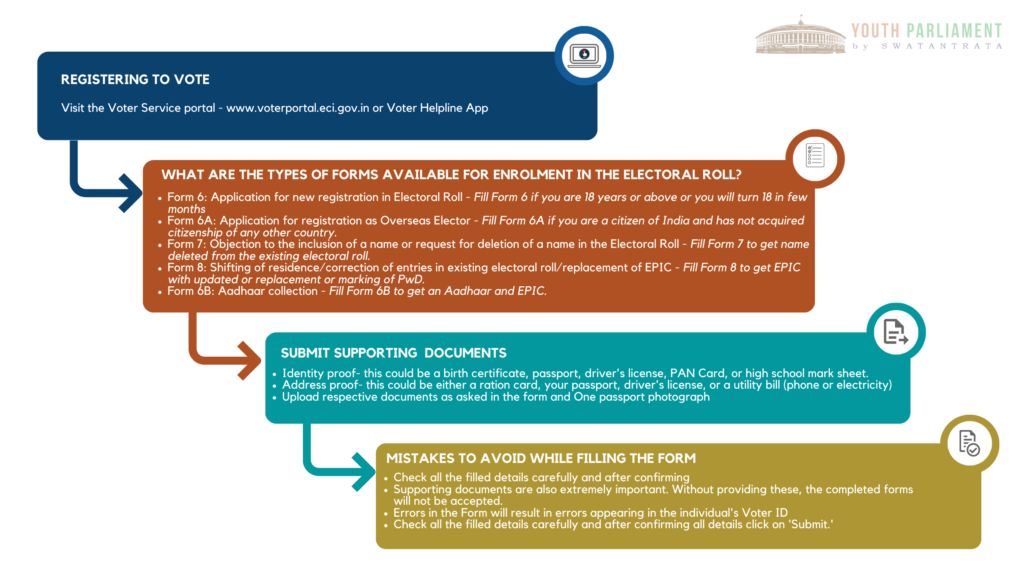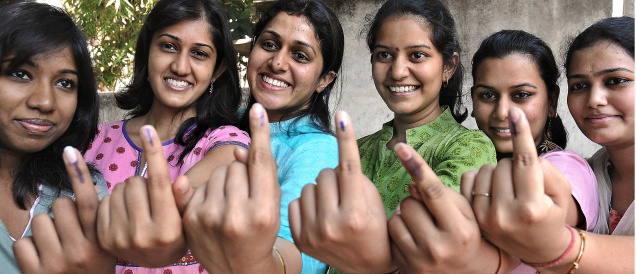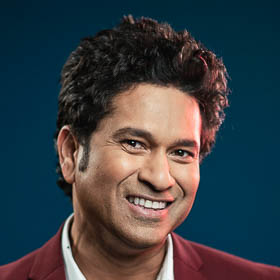Democracy Needs You
Voter Awareness Campaign for Young Indians
Campaign Objective: To inspire young people in India to register to vote and participate in the approaching elections by increasing their awareness of the value of voting.

Campaign Objective: To inspire young people in India to register to vote and participate in the approaching elections by increasing their awareness of the value of voting.

The “Youth Democracy Drive” is a vibrant and inclusive campaign that aims to inspire all eligible voters to exercise their right to vote in elections across India by empowering young people. With a focus on the youth population, this campaign will employ a multi-pronged strategy to inform, engage, and organize citizens. With more than half of the population under 35, India is a youthful democracy. Although young people are becoming more politically active, there is still a sizable difference between the number of young people who are entitled to vote and those who actually cast ballots.
By educating young people about the value of voting and inspiring them to take part in the democratic process, the Youth Democracy Drive initiative can help close this gap. The democracy of India benefits greatly from the involvement of the youth. They are India’s future, and they are the ones who will choose its course.
Emphasize the importance of young people’s engagement in determining the future of the country as you encourage them to register as voters.
Make voter education materials easily accessible and interesting to help citizens comprehend the political process, their rights, and the importance of voting.
Raise awareness among the general public about the significance of voting, the effects of youth engagement, and the importance of making well-informed decisions.
Encourage young people to vote and participate in elections so they can have their say on important issues.
Campaign Goal: To inspire young people in India to register to vote and participate in the approaching elections by increasing their awareness of the value of voting.
The “Youth Democracy Drive” is a vibrant and inclusive campaign that aims to inspire all eligible voters to exercise their right to vote in elections across India by empowering young people. With a focus on the youth population, this campaign will employ a multi-pronged strategy to inform, engage, and organize citizens.
States and union territories of India (Source: Wikipedia)



Elections are the very lifeblood of a democracy. Honest and capable citizens freely chosen as their representatives and servants by voters in a fair election process constitute the essence of good governance. An election is therefore about ‘who’ gets elected, ‘how’ the election is held, and ‘what’ they do after the election. India is singularly fortunate in being able to fulfill the four essential conditions for being categorized as a liberal democracy, as outlined by Myron Weiner.
Judged by these standards only a few nations – largely belonging to North America and Western Europe – can be classified as functioning democracies without interruption over the past fifty years. India belongs to this select group, and we can be justly proud of that achievement. However, there is much that is wrong with our elections. Flawed electoral rolls have become a menace. About 40% errors are noticed in electoral rolls in many urban areas, and bogus voting in towns exceeds 20%, making our elections a mockery. Purchase of votes through money and liquor, preventing poorer sections from voting, large scale impersonation and bogus voting, purchase of agents of opponents, threatening and forcing agents and polling personnel to allow false voting, booth-capturing and large scale rigging, bribing polling staff and police personnel to get favours and to harass opponents, large scale violence and use of criminal gangs, stealing ballot boxes or tampering with the ballot papers, inducing or forcing voters to reveal their voting preferences through various techniques including ‘cycling’ etc, illegally entering the polling stations and controlling polling process – all these are an integral part of our electoral landscape.
Active monitoring and campaigning by non-partisan citizens’ initiatives is critical to check the malpractices and bring in simple, but effective reforms. Inclusion of names of eligible voters in electoral rolls and deletion of ineligible names is, for instance, a simple, easy and remarkably effective measure within the existing law, through people’s involvement. Minor procedural improvements like making available electoral rolls in every post office, and using them as centres for enrolling and deleting names will make a vast difference. Bringing pressure on political parties to select candidates through a democratic process involving members’ voting, screening of candidates for criminal record or corruption and publicizing the findings, campaign for simple procedural changes like mandatory identity cards as a precondition for voting, and mandatory repolling if the tendered votes (sure proof of rigging) exceed a certain number or percentage, making information about candidates pubic, common platforms for candidates’ public interaction facilitating probing questions, campaign to promote enrollment and voting and people’s vigil on polling day are some of the citizens’ initiatives necessary to cleanse our electoral process.

India is a nation which is considered to be the youngest in its demographics. In the future, the number of youth voters and their relative share will only grow progressively. In this scenario, it is paramount for the efficiency of democracy to ensure that these youth are an integral and vibrant part of democratic participation and voting.

“We are the largest democracy in the world and it is our prime responsibility to exercise our voting rights with due diligence.”

“I want to tell you all that voting is the most important right that has been given to us. We, as the citizens of this country, are the most powerful people. We elect our leaders. There is no point in complaining for the next five years, ‘Ki kuch nahin ho raha’. Jao aur vote karo.”